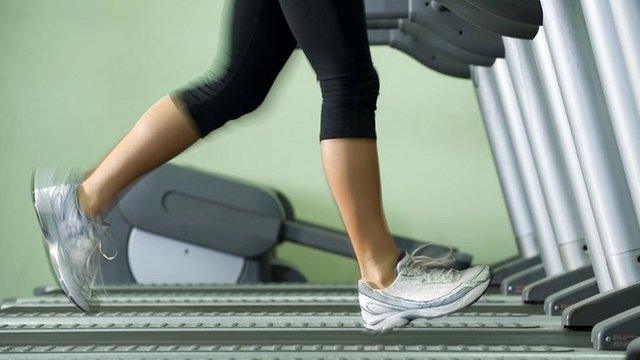Middle-aged 'risk unhealthy retirement'
- Published
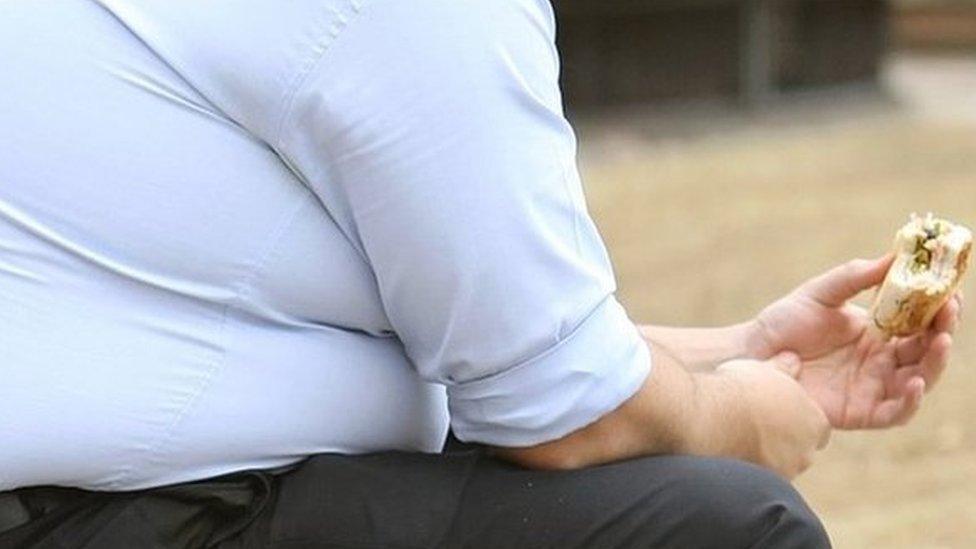
Unhealthy middle-aged people must improve their lifestyles if they want to enjoy a healthy retirement, a new government campaign is warning.
Public Health England's One You campaign is urging the over 40s to drink less, exercise more, eat better and give up smoking.
It is the first national campaign to specifically target this group.
Currently more than two-fifths of those aged 45 to 64 are living with an illness or disability in England.
The campaign will warn those in middle-age that unless they change their ways they could die early or face a retirement blighted with ill-health.
While overall life expectancy has been rising in recent decades, the years people spend in good health has changed little.
But research has shown that living healthy in middle age can double an individual's chances of being healthy at 70.
To encourage people to change their ways, Public Health England, the government's advisory body, is launching an online lifestyle checker under the One You brand.
It allows people to answer a series of simple questions about their lifestyle and gives them a rating out of 10.
It then provides them with advice about where they can get help and what they need to do to change their lifestyles.
The burden of unhealthy lifestyles in England
40%
of deaths are related to lifestyle
£11bn
spent by the NHS every year treating lifestyle-related illnesses
-
3/4 men and 2/3 women aged 45-64 are overweight or obese
-
5% of the heaviest drinkers consume 30% of all alcohol
-
8 million adults - almost one in five - smoke
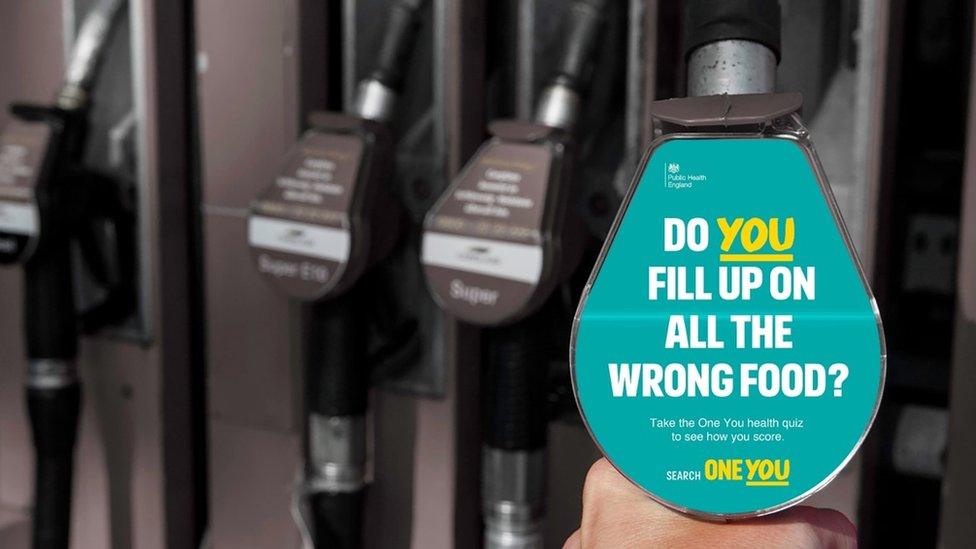
The new campaign can be found on petrol pumps and billboards
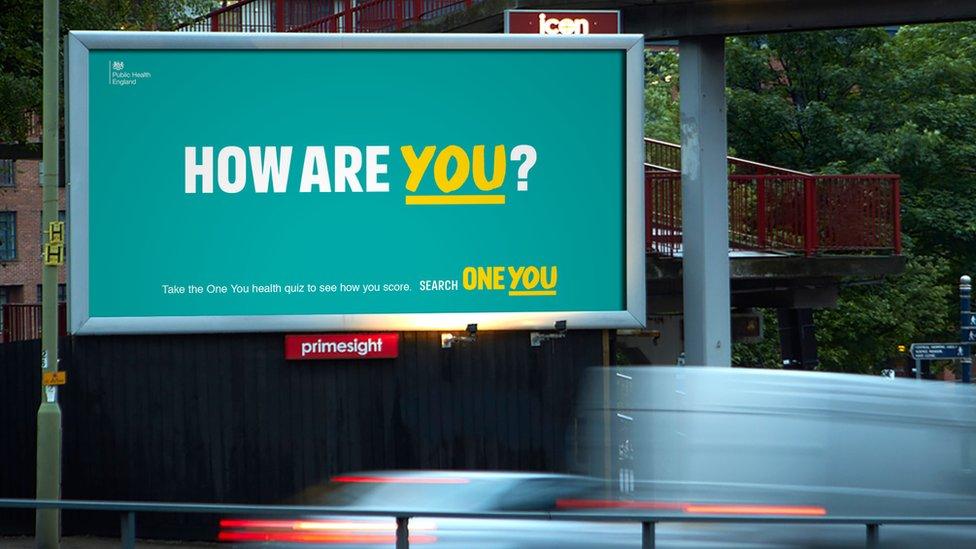


PHE has also joined force with a number of partners, including the BBC Get Inspired brand, Asda - which will be providing free blood pressure checks - and Slimming World - which is providing discounted access to its schemes.
The campaign will be promoted online, on TV and through a national high street poster campaign.
PHE adviser Prof Sir Muir Gray said: "One you is designed to help every individual identify not only their risks but also the pressures they face in their life and the stress that results and then support them with personalised tools and advice."
England's chief medical officer Prof Dame Sally Davies urged people to use it as an opportunity to act. "We all have the power to shape our future health by making simple and small changes now."
- Published27 January 2015
- Published13 October 2014

- Published20 June 2014
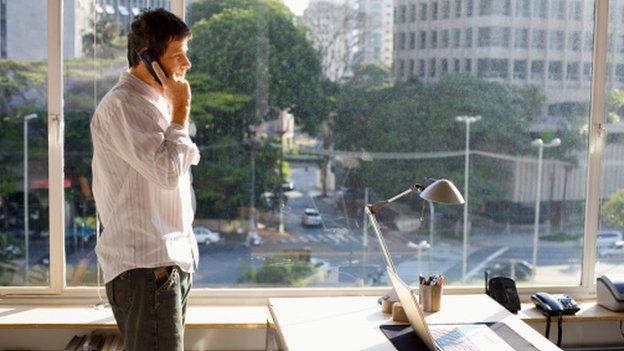
- Published14 September 2014

- Published23 April 2015
